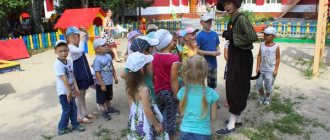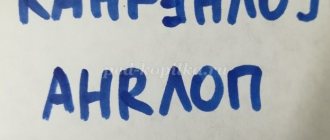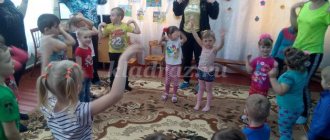Quest game for teachers Pedagogical journey
Quest game “Pedagogical journey”
Rules of the game:
The participants of the game are divided into 4 teams. The game takes place at the stations: Recognition, Decryption, Definition, Conciliation, Foreign, Author's, Methodological, Pedagogical. The maximum time to pass the station is 2 minutes.
After completing a task at a station, team members receive a specific letter and move on to a new task at the next station. At the final stage of the game, teams will need to create a keyword using the received code (ADZMOPSU)
GAME PROGRESS BY STATION:
INFORMATIONAL
Answer:
After a correctly completed task, the team receives the letter Y
DECRYPTION
This teacher believed that education should be carried out at school with the help of: a school-wide plan, class-lesson organization, studies from the age of 6, knowledge testing, a ban on skipping lessons, textbooks for each grade.
Answer:
Jan Amos Comenius. Didactic principles: conformity to nature, clarity, consistency, consciousness, feasibility, strength, systematicity.
After a correctly completed task, the team receives the letter Ш
DETERMINATIVE
Define:
| Give | definition |
| Didactics | 1. science that studies the essence, patterns, trends and prospects for the development of the pedagogical process. |
| Observation | 2. method of scientific research, targeted collection of information about the facts of human behavior and activity in various natural conditions. |
| Methodology | 3. the science of training and education, their goals, content, methods, means, organization. |
| Education | 4. the doctrine of the principles of construction, forms and methods of scientific and cognitive activity, theoretical justification for the set of methods, their unity and connections |
| Knowledge | 5. the result of the process of cognition of reality, which has been confirmed in practice. |
| Pedagogy | 6. the process and result of mastering systematized knowledge, skills and abilities and ensuring on this basis an appropriate level of personal development. |
Answer:
Didactics-3, Observation-2, Methodology-4, Education-6, Knowledge-5, Pedagogy-1
After a correctly completed task, the team receives the letter C
CONDITIONAL
Do you agree that...
| Do you agree? | Are you with the fact that... |
| Learning ability | a) monitoring the process of acquiring knowledge, skills and abilities. |
| Diagnostics | b) individual indicators of the speed and quality of a person’s assimilation of knowledge, skills and abilities in the learning process. |
| Control | c) a system of actions and operations to control the assimilation of knowledge. |
| Examination | d) determining the degree of mastery of knowledge and skills. |
| Grade | e) conditional expression of the quantitative assessment of students’ knowledge of learning in numbers or points. |
| Mark | f) precise determination of the results of the didactic process. |
Answer:
Learning ability
-b
, Diagnostics-
e
, Control-
a
, Check-
c
, Assessment
d
, Mark-
d
After a correctly completed task, the team receives the letter I
FOREIGN
Do you believe that...
1. In schools in the Czech Republic there is a five-point grading system, where a grade of 5 is the worst grade, and a grade of 1 is the best.
2. In Finnish schools, the teacher does not call the student if he does not want to. Showing a student's shortcomings in front of his fellow students is considered unacceptable here.
3. In Sweden, the school principal has the right to independently transfer a gifted student to a higher grade, but parental permission is required.
4. In Norwegian schools, students are not graded until the eighth grade.
5. In France there is a 20-point rating system.
6. In Japanese schools, teachers do not give grades for the presence or absence of homework and the degree of readiness for the lesson.
7. Home education in Germany. is against the law and will result in a fine.
Answer:
Yes – 1,3,4,6 No – 2,5,7
After a correctly completed task, the team receives the letter I
AUTHOR'S
Famous works of great teachers (make pairs)
Answer:
1 – f, 2 – c, 3 – b, 4 – g, 5 – d, 6 – h, 7 – j, 8 – i, 9 – a, 10 – d.
After a correctly completed task, the team receives the letter U
METHODOLOGICAL
Give the following definitions or WHAT IS...:
Purposeful and specially organized influence of the teacher on the student...
Basic, initial theoretical principles that determine the choice of methods, techniques and teaching aids...
Methods of interconnected activities of teachers and students aimed at achieving the goals of teaching, education and development...
The main form of training...
Expected result of the lesson...
The result of cognitive activity; a set of acquired concepts, laws, principles, images, phenomena and objects...
A skill brought to automatism, a high degree of perfection...
Awareness and comprehension of oneself in the process of activity...
The result of training and education...
Answer:
education, principles of teaching, teaching methods, lesson, purpose of the lesson, knowledge, skill, reflection, education.
After a correctly completed task, the team receives the letter N
PEDAGOGICAL
Choose the correct answer:
1. The student’s level of development and preparedness for activities today: actions that he can perform independently
Zone of actual development Zone of proximal development
2. The student’s ability to assimilate information and educational material
Training Learning
3
.
Stimulus that encourages the student to be active
Motive Motivation
4.
Tendency to acquire new knowledge
Curiosity Curiosity Cognitive interest
5. A clear presentation of the material based on interpretation, analysis, generalization in order to form concepts
Explanation Conversation Story
Answer:
Zone of actual development, Learning, Motive, Curiosity, Explanation
After a correctly completed task, the team receives the letter K
Our exciting journey has come to an end. I hope that you completed all the proposed tasks. After all, another test lies ahead!
Find the hidden clues and once again remember the tasks that you encountered on our journey. All route stations have been passed.
Teams receive a clue to the last final task and the text of the task itself. The team that gives the correct answer first wins.
Key: ADZMOPSU
Exercise:
Which famous teacher owns this phrase:
“The whole school, the whole pedagogy is, first of all, the teacher...”
Answer:
Ushinsky
The results of the quest game are summed up. Thanks to the teams for a decent game.
To print
ADZMOPSU ADZMOPSU
ADZMOPSU ADZMOPSU
| U | Sh | AND | N | WITH | TO | AND | Y |
| U | Sh | AND | N | WITH | TO | AND | Y |
| U | Sh | AND | N | WITH | TO | AND | Y |
| U | Sh | AND | N | WITH | TO | AND | Y |



